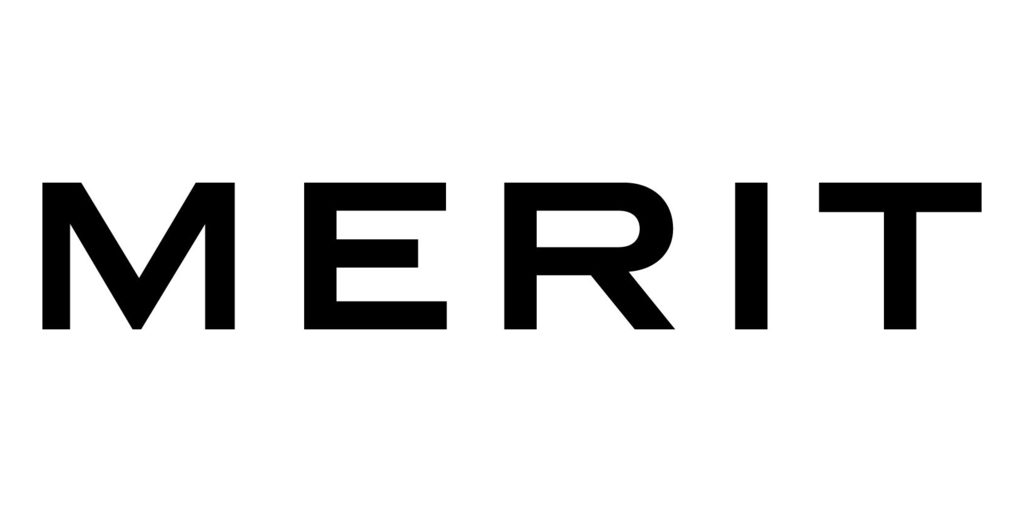Introduction
Scholarships play a crucial role in helping college students achieve their educational goals, and for some, the dream becomes a reality by winning a spring 2024 scholarship. They provide financial assistance that can alleviate the burden of tuition fees, textbooks, and other expenses. However, the process of applying for scholarships can be overwhelming and competitive. This blog post aims to provide a comprehensive guide to navigating the scholarship application process for Spring 2024. It will cover everything from understanding the requirements of scholarships to crafting a winning essay, highlighting achievements, securing strong letters of recommendation, enhancing resumes and portfolios, attending workshops and information sessions, demonstrating financial need and merit, preparing for interviews and presentations, and staying organized throughout the application process.
Understanding the Requirements of Spring 2024 Scholarships
Scholarships come in various forms, including the merit-based, need-based, athletic, and specific field-of-study scholarships. It is essential to understand the different types of scholarships available to determine which ones are the best fit for your circumstances. Merit-based scholarships are awarded based on academic achievements, while need-based scholarships consider the financial situation of the applicant. Athletic scholarships are given to students who excel in sports, and scholarships in specific fields of study are awarded to students pursuing a particular area of study.
Each scholarship has its own eligibility requirements, which may include academic performance, extracurricular activities, community service, leadership roles, and more. It is crucial to carefully review the eligibility criteria for each scholarship to ensure that you meet the requirements before applying. Additionally, consider your strengths and interests when selecting scholarships to apply for. Focus on scholarships that align with your academic and personal goals to increase your chances of success.
Researching Available Scholarships and Deadlines

Finding scholarships can be a daunting task, but there are strategies to make the process more manageable. Start by checking with your college or university’s financial aid office, as they often have information on scholarships available to students. Additionally, utilize online scholarship search engines and databases, such as Fastweb, Scholarships.com, and College Board’s Scholarship Search. These platforms allow you to filter scholarships based on your specific criteria, such as field of study, location, and eligibility requirements.
When researching scholarships, pay close attention to deadlines. Missing a deadline can result in your application being disqualified, so it is crucial to stay organized and keep track of all the deadlines. Create a calendar or spreadsheet to record the application deadlines for each scholarship you plan to apply for. Set reminders to ensure you submit your applications on time.
Crafting a Winning Scholarship Essay
The scholarship essay is an essential component of the application process. It provides an opportunity for you to showcase your personality, goals, and achievements. When writing your essay, it is crucial to be authentic and genuine. Start by brainstorming ideas and outlining your essay before diving into the writing process. Consider the essay prompt and how you can effectively address it while highlighting your unique qualities and experiences.
Common essay prompts include discussing your academic and career goals, describing a significant challenge you have overcome, explaining why you deserve the scholarship, and discussing your involvement in extracurricular activities or community service. Approach each prompt with a clear and concise response, providing specific examples and anecdotes to support your claims. Remember to proofread your essay for grammar and spelling errors, and consider seeking feedback from a trusted mentor or teacher.
To gain inspiration and insight into successful scholarship essays, read examples of winning essays. Many scholarship websites and organizations provide examples of essays that have been awarded scholarships. Analyze these essays to understand what made them stand out and incorporate those strategies into your own writing.
Highlighting Your Achievements and Accomplishments
When applying for scholarships, it is crucial to showcase your strengths and accomplishments. This can be done through your resume, portfolio, and any additional supporting documents. Start by creating a comprehensive resume that highlights your academic achievements, extracurricular activities, leadership roles, community service, and work experience. Tailor your resume to each scholarship application, emphasizing the experiences and skills that are most relevant to the scholarship’s requirements.
In addition to your resume, consider creating a portfolio that showcases your work and achievements. This can include samples of your writing, artwork, research projects, or any other relevant materials. A portfolio provides tangible evidence of your abilities and can make a strong impression on scholarship committees.
When highlighting your achievements, be sure to quantify your accomplishments whenever possible. For example, instead of simply stating that you volunteered at a local food bank, mention that you served over 100 hours and helped feed 500 families. Quantifying your achievements adds credibility and demonstrates the impact of your efforts.
Securing Strong Letters of Recommendation

Letters of recommendation are an essential component of scholarship applications. They provide insight into your character, abilities, and potential for success. When choosing recommenders, consider individuals who know you well and can speak to your strengths and accomplishments. This can include teachers, professors, employers, coaches, or mentors.
Before requesting a letter of recommendation, reach out to the potential recommender to discuss your goals and why you believe they would be a strong advocate for your application. Provide them with any necessary information, such as your resume, transcript, and the scholarship’s requirements. It is also helpful to provide a deadline and any specific instructions for submitting the letter.
To ensure a strong letter of recommendation, provide your recommenders with a clear understanding of the scholarship’s requirements and your goals. Additionally, offer to meet with them to discuss your application in more detail. This will allow them to write a more personalized and impactful letter.
Enhancing Your Resume and Portfolio
A strong resume and portfolio can make a significant difference in the scholarship application process. When enhancing your resume, focus on highlighting your most relevant experiences and achievements. Use action verbs and specific examples to demonstrate your skills and accomplishments. Additionally, consider including any certifications, awards, or honors you have received.
When creating a portfolio, select your best work and organize it in a professional and visually appealing manner. Use clear headings and descriptions to provide context for each piece. If possible, include a brief explanation of why each piece is significant and how it relates to your goals.
Remember to update your resume and portfolio regularly as you gain new experiences and accomplishments. This will ensure that you are always prepared to submit your best work when applying for scholarships.
Attending Scholarship Workshops and Information Sessions
Attending scholarship workshops and information sessions can provide valuable insights and guidance throughout the application process. These events often offer tips and strategies for finding scholarships, writing essays, securing letters of recommendation, and more. They may also provide opportunities to connect with scholarship providers and ask questions.
To find scholarship workshops and information sessions, check with your college or university’s financial aid office, as they often host these events. Additionally, search online for local workshops and events in your area. Many scholarship organizations and foundations offer workshops and webinars to assist students in the application process.
When attending these events, come prepared with questions and a notebook to take notes. Take advantage of the opportunity to network with scholarship providers and other students who may have valuable insights and advice. Remember to follow up with any contacts you make to express your gratitude and continue building relationships.
Demonstrating Financial Need and Merit

Many scholarships consider both financial need and merit when selecting recipients. To demonstrate financial need, you may be required to submit financial documents, such as tax returns or FAFSA information. It is essential to be honest and transparent about your financial situation, as scholarship committees often have strict guidelines for determining needs.
To showcase your merit, focus on highlighting your academic achievements, extracurricular activities, leadership roles, and community service. Provide specific examples and quantify your accomplishments whenever possible. Additionally, consider including any special talents or skills that set you apart from other applicants.
When demonstrating financial need and merit, it is crucial to provide supporting documents and evidence. This can include transcripts, certificates, letters of recommendation, and any other relevant materials. Be sure to follow the scholarship’s instructions and guidelines for submitting these documents.
Preparing for Scholarship Interviews and Presentations
Some scholarships require interviews or presentations as part of the application process. It is essential to prepare thoroughly for these opportunities to make a strong impression on the scholarship committee. Start by researching the scholarship organization and understanding their mission and values. This will allow you to tailor your responses to align with their goals.
Practice common interview questions and prepare thoughtful and concise answers. Consider your experiences, achievements, and goals, and how they relate to the scholarship’s requirements. Be prepared to discuss your strengths and weaknesses, as well as any challenges you have overcome.
When giving a presentation, create a clear and engaging outline. Use visual aids, such as PowerPoint slides or props, to enhance your presentation. Practice your presentation multiple times to ensure that you are confident and comfortable with the material.
During interviews and presentations, maintain eye contact, speak clearly and confidently, and be yourself. Remember to express gratitude for the opportunity and follow up with a thank-you note or email after the interview or presentation.
Staying Organized and Focused Throughout the Application Process
The scholarship application process can be overwhelming, but staying organized and focused is crucial for success. Create a system to keep track of all the scholarships you plan to apply for, including deadlines, requirements, and any additional documents needed. This can be done through a calendar, spreadsheet, or online organization tool.
Break down the application process into smaller, manageable tasks. Set deadlines for yourself to complete each task, such as drafting your essay, gathering supporting documents, and submitting your application. By breaking down the process, you can stay on track and avoid feeling overwhelmed.
Utilize tools and resources to stay organized and focused. This can include online scholarship management platforms, such as ScholarshipOwl or Going Merry, which allow you to search for scholarships, track your applications, and receive reminders for deadlines. Additionally, consider reaching out to your school’s guidance counselor or a trusted mentor for guidance and support throughout the application process.
Conclusion
Scholarships provide invaluable financial assistance to college students, and the application process can be competitive. By understanding the requirements of scholarships, researching available scholarships and deadlines, crafting a winning essay, highlighting achievements and accomplishments, securing strong letters of recommendation, enhancing resumes and portfolios, attending scholarship workshops and information sessions, demonstrating financial need and merit, preparing for interviews and presentations, and staying organized and focused throughout the application process, you can increase your chances of receiving scholarships for Spring 2024. Start early, be proactive, and put your best foot forward in each application. Good luck!


